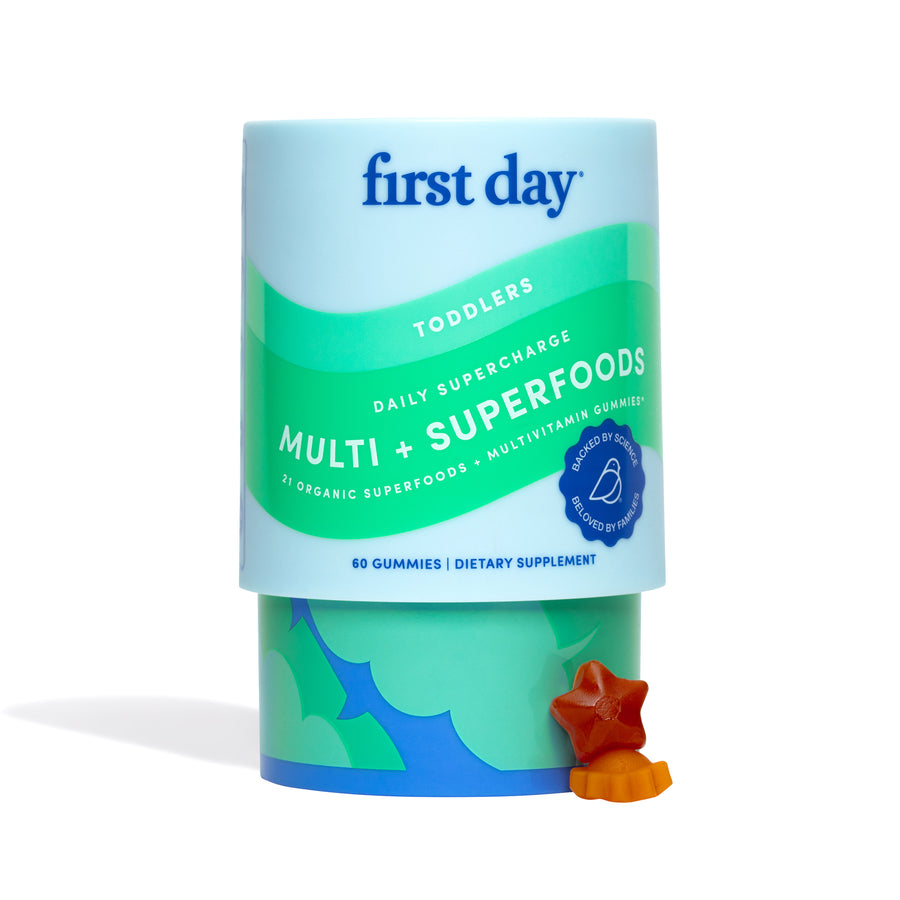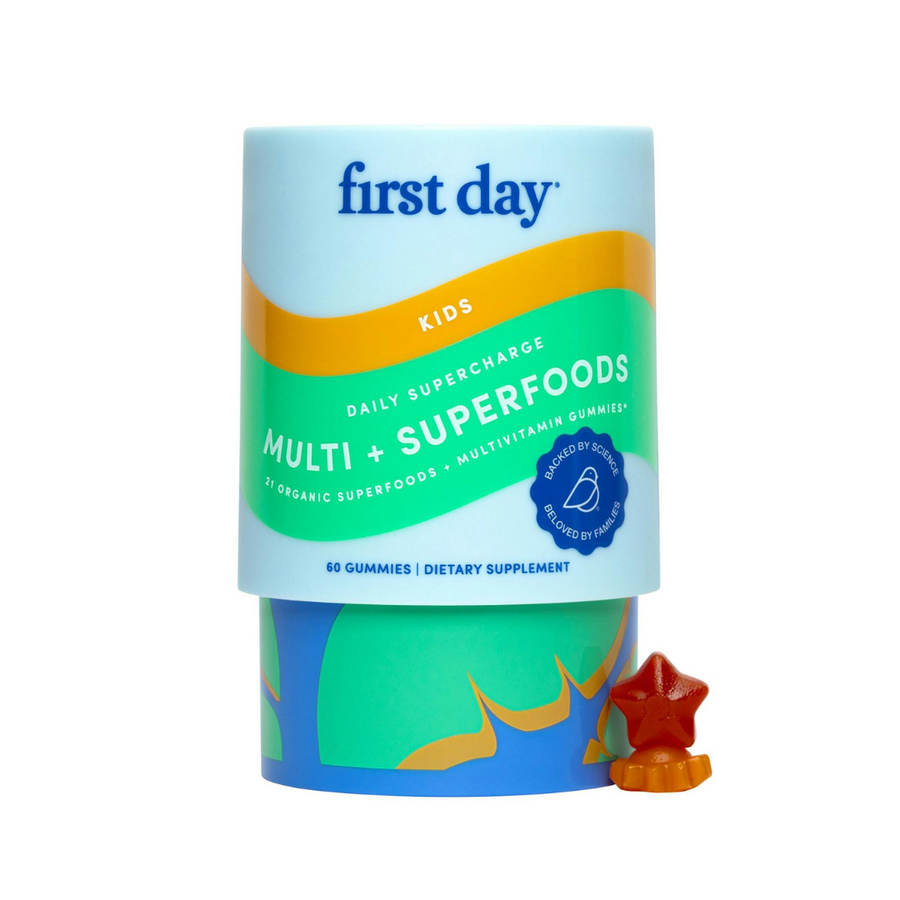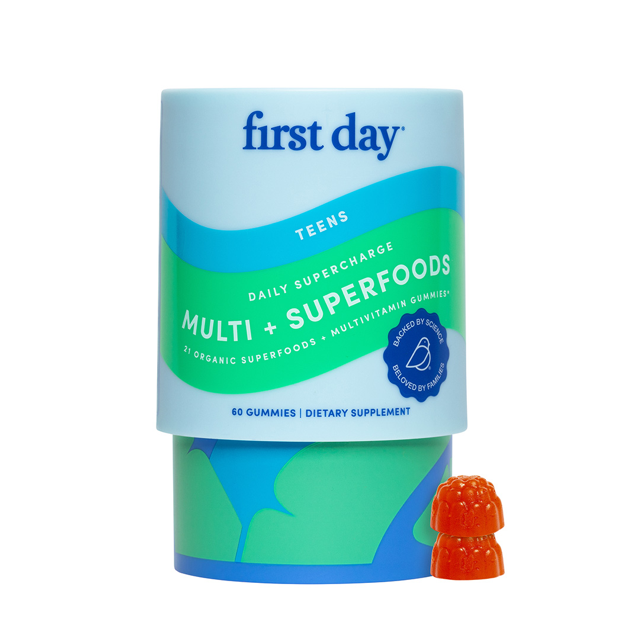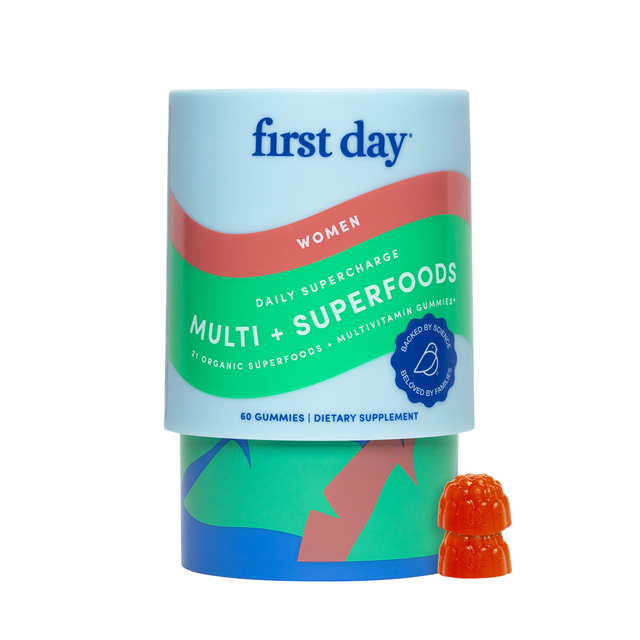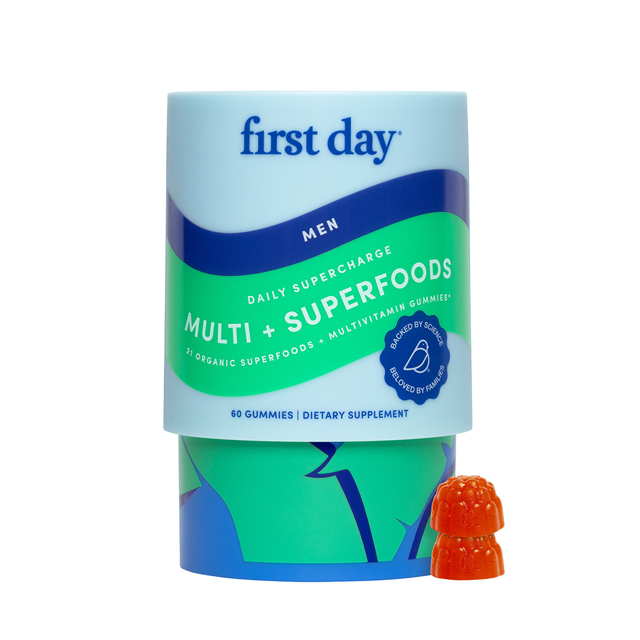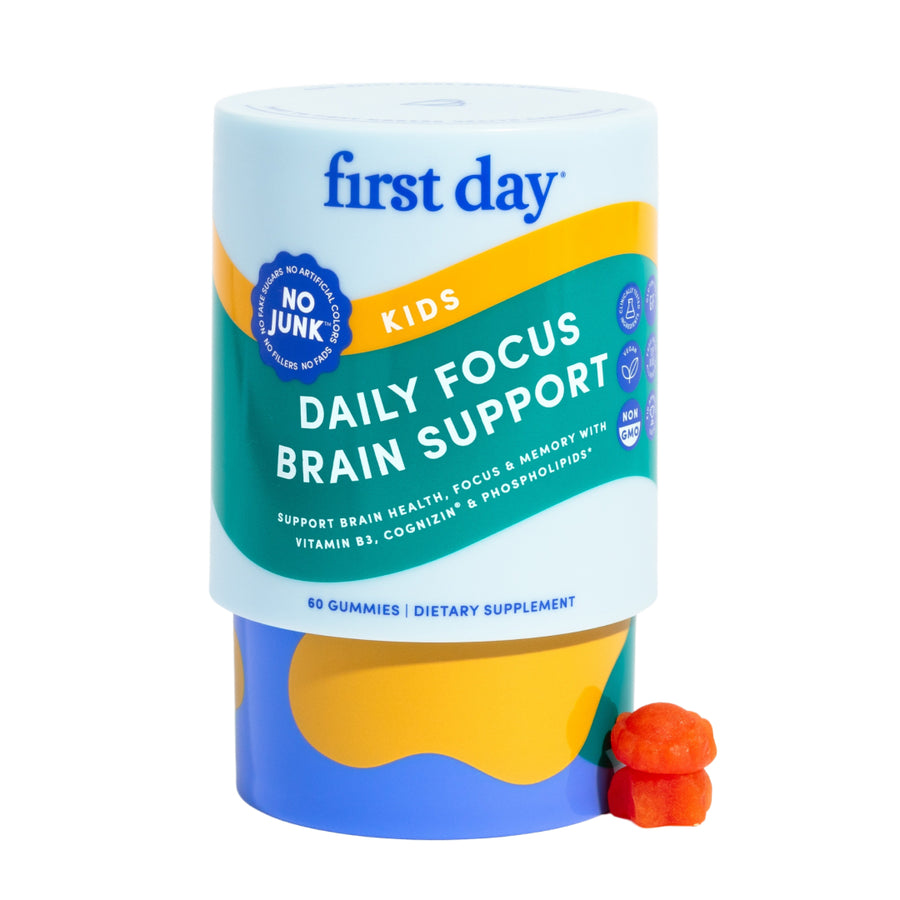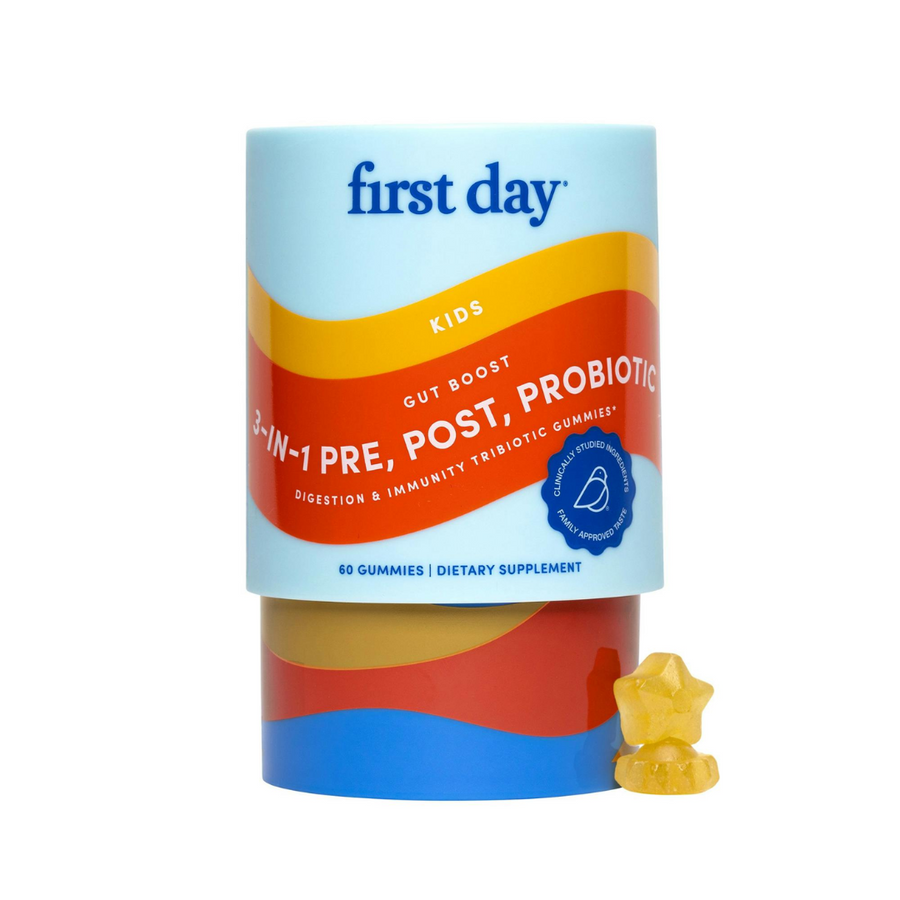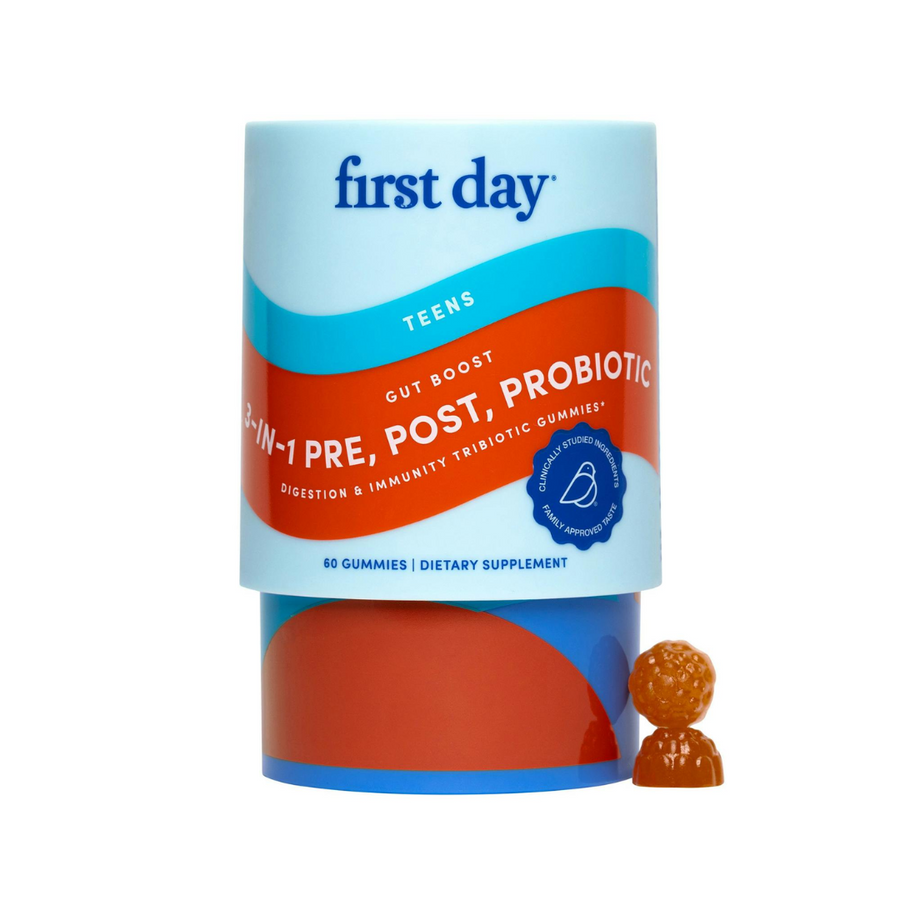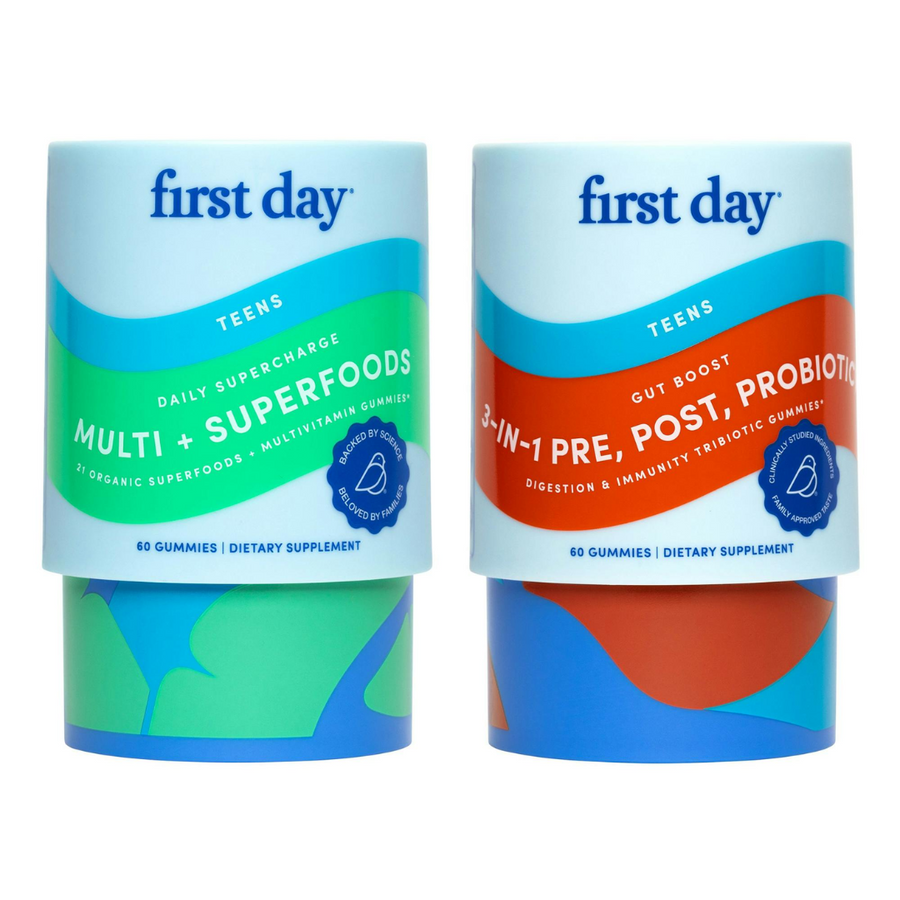As a parent, you worry about everything your child does. One of the things that may cause parents stress is when their child is a picky eater. Toddlers are notorious for being fussy eaters. It can be hard to get them to eat anything other than finger foods like chicken nuggets and fries.
This blog post will provide some tips and tricks for making mealtimes easier, including recipes you to incorporate into your child's diet that they will love, and how a children's multivitamin might be needed to cover your little one's bases!

What is a Picky Eater?
Picky eaters are young children who don't like to eat certain foods or are very selective about what they will and won't eat. Some children only eat a a handful of foods, while others may be more adventurous.
While all kids can be picky at times, when a child chooses what the child eats it can cause parents to stress. Parents worry if they're not getting the nutrition, they need.
There are a few different eating behaviors that may be classified as picky eating:
-
Only eats a few foods and is unwilling to try new things
-
A child who is adventurous with their eating but still has some foods they don't like
-
Rejects all foods except for a few specific items
-
Slow eater and takes a long time to finish their meals
-
A child who eats very quickly and wolfs down their food
Picky eating is normal behavior for young kids, and it's a way that teaches children to assert their independence and control over their bodies making it the child's decision. Most kids outgrow this power struggle phase by the time they're school-aged.
If your child does not get the right amount of nutrients they need to get, it is undoubtedly a problem. Let's discuss what will happen if your child doesn't change their eating behavior.

What Will Happen If My Child Doesn't Stop Being A Picky Eater?
If your child is a picky eater, it's essential to ensure they're still getting the nutrients they need. If not, there are a few things that could happen:
-
Your child could become malnourished
-
Slow your child's growth
-
Your child could develop eating disorders
Extreme picky eating can also lead to social and emotional problems. Kids who are picky eaters may feel left out when they see their friends eating foods they don't like. Also, they may feel anxious or stressed about mealtimes.
Being a parent, your child depends on you, and they need you. Growing up is a crucial stage of a growing child, so it lets us know the role of parents in their picky kids.
What Are The Roles of The Parents To Their Picky Eater Children?
As a parent, you play a significant role in your child's eating habits. You can help encourage and teach kids about healthy eating and nutrition. You can also model healthy eating behaviors yourself. You can also share responsibility for meals with your child. This means involving them in meal planning and cooking, which can help them feel more comfortable trying new foods.
It's also important to be patient with your child. It may take time for them to warm up to new foods. Be positive and supportive, and don't get discouraged if they don't change overnight. If you're struggling with a picky eater, don't worry - you're not alone! We at First Day got your back!
Why Do Children Become Picky Eaters?
There are a few different reasons why a child may eat the same meal every time and becomes picky to other kinds of foods:
-
Texture
Some kids don't like certain textures of foods, such as slimy or mushy textures.
-
Taste
Some foods may taste too strong or spicy for young chilren.
-
Appearance
Kids may not want to eat certain foods because of how they look.
-
Smell
The smell of some foods may bother some kids.
-
Temperature
Some kids prefer their food to be at a specific temperature, hot or cold.
-
Food Trauma
If a child has had a bad experience with a certain food, such as choking or vomiting, they may become afraid of that food and refuse to eat it.
-
Sensory Processing Disorder
This is a condition where the brain has trouble processing information from the senses. This can make certain textures, tastes, and smells overwhelming for kids.
It is essential to know these things because it will help you understand your picky eater more. It is also necessary to identify the cause to solve this problem. Speaking of “solution”, let's move on to the tips on how to stop your child from being so picky.

16 Tips on How to Stop Picky Eating
It can be frustrating to deal with a picky eater as a parent. You know that your child needs to consume various foods to get the nutrition they need, but it seems like they would rather eat the same few things day in and day out.
If you're struggling to get your child to eat a more diverse range of foods and get the nutrients they need, here are 16 tips that may help:
-
Give Them Multivitamins for Kids
First, we recommend that you give them multivitamins for kids. This will help ensure that they are getting all the nutrients they need, even if they are not eating a very varied diet.
-
Provide Them a Variety of Healthy Foods
It's essential to provide your child with a variety of nutritious foods. This will help them get the nutrition they need and increase their chances of finding something they like. For example, offer feeding them different fruits, vegetables, grains, and protein sources.
Don't forget to encourage them to eat fruits and vegetables every day!
-
Gently but Frequently Offer New Foods
Be patient when introducing new food to your child. It may take several tries before they're willing to try it. (Adapted from Lerner & Parlakian, 2007), kids need to be offered new food as many as 10-16 times before a child eats. Keep offering new foods, and eventually, they'll find something they like.
For instance, let's say your child doesn't like broccoli. Try offering it again in a different way, such as roasted broccoli with cheese or steamed broccoli with a light sauce.
-
Don't Spoil Your Picky Eater's Dessert
Some parents use desserts, cake or cookies as a reward if their child finishes their meal. However, this can backfire by teaching kids that dessert is only for those who eat their entire meal.
If you give in to your child's demands for dessert, they may learn that they can get what they want by being picky. It's okay to offer a treat now and then, but make sure it's not the only time your feeding them fruits or vegetables.
In addition, desserts are not only limited to cake or cookies only! You can use more healthy options like fresh fruits or yogurt.

-
Incorporate Your Child's Favorite Foods to the Foods They Don't Like
One way to encourage your child to eat other foods is to incorporate their favorite foods into them. This could mean adding cheese to broccoli or making a pizza with lots of vegetables.
If your child likes chicken nuggets, try baking them with breadcrumbs and Parmesan cheese. This will add some flavor and make them more appealing. You can also try pureeing vegetables and adding them to sauces or soups. This way, your child will be getting the nutrition they need without even knowing it!
-
Don't Be a Short-Order Cook
Come on! Don't always let your child decide what to eat for every meal. It's okay to offer a few choices, but ultimately, you should be the one in charge of what's for dinner.
When a child decides it makes it easy to fall into the trap of making a separate meal. However, this will only make the problem worse. It's vital to a child learns that they need to eat the same food the family eat.
Of course, you can make some accommodations if your child has allergies or medical conditions. But, in general, it's best to avoid making multiple meals. If you're short on time or energy, there are plenty of healthy and easy recipes that the whole family will enjoy.
-
Get The Entire Family Involved In Mealtime
Make mealtimes fun and relaxed for everyone involved. This will help make your child more comfortable and likely to try new foods. For example, for one meal have a picnic dinner in the living room or eat outside when weather permits.
Plus, avoid power struggles at the dinner table. If mealtimes are stressful, it will only make things worse for your picky eater. Make mealtime a social event where everyone can relax and enjoy each other's company.

-
Don't Force Your Child To Eat
Forcing your child to eat will only make them more resistant to trying new foods. If they're not hungry, don't force them to eat. If your child refuses to eat, just try another time again. Try offering a small snack an hour or two before mealtime. This will help ensure they're hungry and more likely to try new food.
Picky eating is normal, and it's nothing to worry about. With a bit of patience and effort, you can help your child learn to enjoy new foods. Just remember to be flexible, and don't give up!
-
Respect Your Child Eating Quirks
While your children might not like a specific food, please respect their decisions. Besides, picky eating shows your child's autonomy and ability to make decisions.
I know, I know you're tired of making two different meals. One for you and one for your picky eater child, but just because they are quirky doesn't mean they don't deserve to eat their food. Just because they want the same foods every day doesn't mean that you can't introduce new foods. It will just take a little longer.
Picky eating is a normal part of childhood development and usually nothing to worry about. With a bit of patience and effort, you can help your child learn to enjoy new foods. Just remember to be flexible, and don't give up!
-
Be a Good Example To Your Children
If you're a picky eater yourself, your child is more likely to be one as well. Be a good role model for your children and eat various healthy foods. This will help them see that trying new foods can be fun and delicious!
-
Let Your Children Eat By Themselves
Many parents make the mistake of feeding their children too much finger food. This can make them pickier, as they learn to rely on someone else to feed them.
One of the best ways to help your child become more comfortable with new foods is to let them eat themselves, especially if they are just into solid foods. This will give them a sense of control and allow them to take their time tasting and exploring new dishes.
For example, put a small portion of food on their plate and let them eat at their own pace. Of course, you can still offer guidance and encouragement, but ultimately, it's up to them to decide what they want to eat.
This can be a great way to help your child learn to try new foods without feeling pressured.

-
Cook/Prepare a Meal With Your Children
One of the best ways to get your children interested in trying new foods is to cook or prepare a meal with them. For example, let them help wash the vegetables, stir the pot, or set the table. This will give them a sense of ownership and pride in the meal.
This will give them a chance to see how food is made, and they'll be more likely to try something they helped make. They also have a chance to make the food tastes good as they will be more willing to put in their own effort.
You can also involve them in grocery shopping, which will help them learn about different foods and where they come from.
-
Respect Your Child's Appetite
Just because your child is small doesn't mean they should eat less. Many experts believe that feeding smaller meals more often are better for picky eaters. This allows them to control when they are finished eating and helps prevent them from getting too full or overwhelmed by a large meal.
It's also essential to respect your child's appetite. If they're not hungry, don't force them to eat, making them more resistant to trying new foods.
-
Set a Mealtime Routine
A routine can help make mealtime less stressful and more predictable. This will help your children feel more comfortable and relaxed, which will make them more likely to try new foods. For instance, you could have a set time for meals, sit down together as a family, and turn off distractions like the TV.
In contrast, others prefer a rotating schedule where everyone eats at different times. Whichever works best for you, be sure to stick to it as much as possible.
-
Make Mealtimes Fun
Mealtime doesn't have to be a boring, stressful event. Make it fun for your children by turning it into an opportunity to learn and explore new foods. Try setting up a food tasting station, where your children can taste different fruits and vegetables.
You can also make mealtimes more interactive by playing games, such as food bingo or guessing games. This will help your child stay engaged and interested in trying new foods.
-
Ask For Professional Help If Necessary
If you've tried all of these tips and your child is still resistant to trying new foods, it may be time to ask for professional help. Talk to your child's doctor or a registered dietitian to get more personalized advice.
They can help you figure out what might be causing your child's picky eating and offer more specific tips on dealing with it.
With a bit of patience and effort, you can help your child overcome their pickiness and develop a healthy relationship with food. Just remember to be flexible, and don't give up!

Multivitamins For Picky Eaters
If your child is a picky eater, they may not be getting all the nutrients they need from their diet. This is where multivitamins can help. Multivitamins provide essential vitamins and minerals that your child may be missing out on.
The First Day kid's daily multivitamin gummies come in various fun flavors, so your child will be more likely to take them. It is easy to take, which is vital for kids resistant to taking supplements. Plus, they're made with all-natural ingredients, so you can be sure they're safe and healthy.
Dr. Zainab Naeem, DDNS

Zainab Naeem, Doctor of Nutrition and Dietetics has attained the degree of DDNS and is a nutritionist/ dietitian by profession and a writer by choice. She has attained the degree as a Nutritionist from The University of Lahore and has worked as a community nutritionist intern at Fatima Memorial Hospital, Lahore and Clinical Nutritionist from Mayo Hospital, Lahore Pakistan. She is also pursuing her degree in Associate degree in Psychology from Virtual University of Pakistan. She has been working as a nutrition and medical blog writer from past 4 years and many of her articles are published on various platforms. Zainab believes that a healthy body needs a healthy mind and her writings revolve around the concept of good nutrition along with working on the mental health too.
She is Co-Author at https://writingstake.com/ and https://sehatnutrition.org/. She is also a co-author in two anthologies and love to pen down her emotions on paper in the form of her writings. As a digital publisher, she has wrote numerous articles and wellness blogs for various clients as a freelance writer. And is currently working as a freelance nutritionist. You can get in contact with the nutritionist through platform https://sehatnutrition.org/ where she is serving as a Head of Hosting and Content writing or can reach her out on IG: xayni_de_artista.

